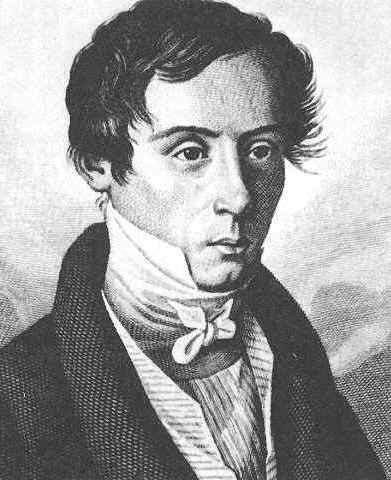
Augustin-Jean Fresnel
Augustin-Jean Fresnel (May 10, 1788 to July 14, 1827) Fresnel was a French physicist and engineer who put the wave theory of light on a firm mathematical foundation, thereby explaining many hitherto puzzling phenomena and successfully predicting others. Before Fresnel’s theoretical and experimental work, very few physicists believed in the wave theory of light (accepting instead the “corpuscular theory”), whereas after his work virtually all physicists did. Fresnel developed the correct basic mathematical theory of diffraction that is taught in textbooks today. By boldly and correctly hypothesizing that light waves are purely transverse (which was hard to justify theoretically at that time), he correctly explained many polarization phenomena (such as optical rotation and chromatic polarization) and derived the “Fresnel equations” for the reflection coefficients of light. He introduced the concepts and terms “linear polarization”, “circular polarization”, and “elliptical polarization.” In optics many things are named in his honor, including Fresnel diffraction, Fresnel integrals, the Fresnel equations for reflection coefficients, Fresnel’s equation for the index of refraction in anisotropic media, and Fresnel lenses. Fresnel died at the age of 39 of tuberculosis, receiving on his deathbed the Rumford Medal of the Royal Society of London. Fresnel was a profoundly religious man and sincere Catholic, though he held Jansenist views. (Jansenists held extreme, rigorist views on sin and predestination, some of which had been condemned by popes in 1653 and 1713.) According to his friend Alphonse Duleau, Fresnel saw the study of nature as part of the study of the power and goodness of God. On one of his scientific works he wrote the epigraph, “Natura simplex et fecunda” (“Nature, simple and fertile”).
Explore Other Scientists
It is our hope that this curated set of biographies will be useful to teachers, students, and the general public.